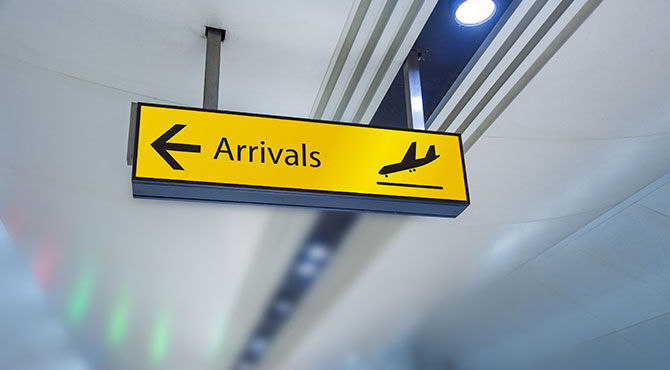The new UK points-based immigration system: what costs will employers face?
We find out the views of both a noted immigration specialist and a hospitality expert about the newly-proposed UK points-based immigration system.

“Tier 2 will continue to be the main route for EU nationals to work in the UK from 2021, so employers will need to significantly increase their use of Tier 2 or apply for a Tier 2 sponsor licence if they do not already have one. This will burden HR with more reporting and record-keeping duties as more employees come within the sponsorship system.
“The sting in the tail for employers and applicants is that the levies on the visa system, the immigration skills charge and the immigration health surcharge will continue to apply. This means that employers will be faced with a significant increase in costs if they want to employ non-settled workers, circa £8K currently for a 5-year visa.
Related article: UK unveils points-based immigration rules
Wider implications for the hospitality sector
Meanwhile, Jane Pendlebury, CEO of HOSPA (the Hospitality Professionals’ Association), expresses concern about the wider implications of a points-based immigration system on the hospitality sector.“It was with a groan that I read the official Government announcement about the plans for a new points-based immigration system. The hospitality industry is the third-largest employer in the UK, but many of the jobs within it aren’t deemed ‘skilled’ – they mainly require hard work, determination and a willingness to go above and beyond."Sadly, a career in hospitality in the UK is often regarded merely as a stepping stone – particularly for university students looking for part-time or seasonal work. By contrast, attitudes on continental Europe are very different, with hospitality seen as a well-respected career path thanks to its wealth of opportunity."Post-Brexit, HOSPA and other industry organisations need to work hard to try and change perceptions of our sector. It’s a career where you can start at the very bottom rung of the ladder and progress to the very top. This isn’t hyperbole either. There are countless examples throughout the industry, where pot washers or part-time waiting staff have gone on to become general managers or to head up leading hotel groups. There’s no ceiling to success."The hospitality industry has already been heavily affected by the initial Brexit vote, with many EU workers feeling alienated and unwelcome. This latest move now goes beyond that. A vast pool of willing talent is set to be cut off from an industry already struggling with staffing. Consequently, we’re extremely concerned about the long-term implications on what should be a thriving trade.”Read the latest news and articles on Immigration.
Subscribe to Relocate Extra, our monthly newsletter, to get all the latest international assignments and global mobility news.Relocate’s new Global Mobility Toolkit provides free information, practical advice and support for HR, global mobility managers and global teams operating overseas. Access hundreds of global services and suppliers in our Online Directory
Access hundreds of global services and suppliers in our Online Directory
©2026 Re:locate magazine, published by Profile Locations, Spray Hill, Hastings Road, Lamberhurst, Kent TN3 8JB. All rights reserved. This publication (or any part thereof) may not be reproduced in any form without the prior written permission of Profile Locations. Profile Locations accepts no liability for the accuracy of the contents or any opinions expressed herein.

























